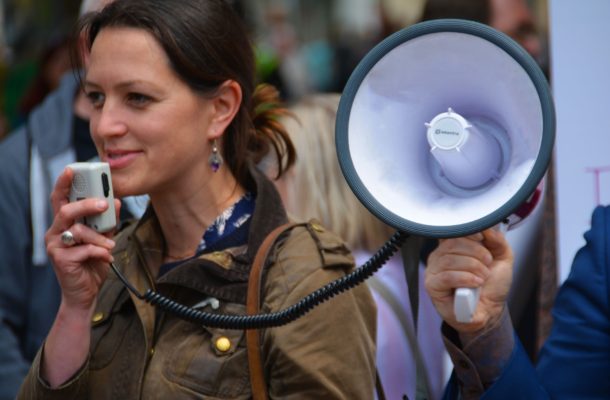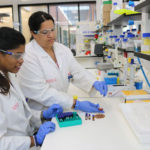Why Australia’s youth vote is the key to climate action

At first glance it may appear that the Turnbull government cares about public health.
The 2018-19 federal budget includes a new ‘21st century medical industry plan’, which involves investment in public technology infrastructure, mental health services and research, promotion of active and healthy living and improved access to medical services for rural areas.
However the Coalition’s failure to mention climate change even once in the budget is a reckless betrayal of the community’s right to good health— especially for young Australians.
Young people recognise that they are the most affected by the government’s decisions which is shown in political activism.
Youth groups such as The Australian Youth Climate Coalition (AYCC), Australia’s first Indigenous youth climate network SEED and Fossil Free Unis are engaging in political activism such as protesting, petitioning and direct communication with politicians.
Medical student members of Doctors for the Environment Australia promote divestment from fossil fuels and education about the health effects of climate change to peers, politicians and the public.
This action, though, does not translate to mainstream politics.
According to the Australian Electoral Commission, 18-30 year-olds account for only 19% of the voting population while voters over 55 account for 40%. This is an clear discrepancy, given that over the long term, youth (particularly those under 18 years) will be the most affected by political decisions; this injustice will worsen given our aging population.
After witnessing situations like Brexit, where the majority vote came from older citizens for a decision that the younger generation must deal with, and given the likely future impacts of burning fossil fuels now, isn’t it time to consider if younger people should be given greater voting power in the upcoming federal election by lowering the voting age?
Recently CO2 levels have topped 410ppm which have contributed to the 1˚C rise in average global temperatures. This temperature change is attributable to the burning of fossil fuels, agricultural practices, land clearing and other government-regulated practices which causes disastrous effects on climate and human health.
Climate change will affect younger generations disproportionately due to the predicted increase in extreme weather events, healthcare costs, damage to infrastructure, food insecurity, conflict and more.
Not to mention vulnerabilities shared by the very young population due to physiological differences such as the higher demand for energy and oxygen, the longer duration of exposure to pollutants and the possibility of altered development.
The Lancet commission on health and climate change stated in 2015 ‘… tackling climate change could be the greatest global health opportunity of the 21 st century’. Addressing rising temperatures now will markedly reduce health impacts later, saving lives and trillions of health care dollars across the world.
This year’s federal budget, however, will see the health of young and future generations of Australia jeopardised by the government halving climate spending to $1.6 billion, a 43% decrease in the environment department from 2013-2022 and a drop in the Climate Change Authority budget which has been steadily dropping since 2011.
The Renewable Energy Target (RET) was reduced by the Abbott government from 45,000 GWh to 33,000 Gwh, or 23.5% of generation by 2020. The RET will expire in 2020 and there is no plan to replace it, leaving it up to state governments to make their own investments in renewables.
The Emissions Reduction Target was reduced from 45% to 26%-28% by 2030, but with no systems in place to achieve even this goal renders the target meaningless.
A further blow is a continued $30 billion in diesel fuel tax subsidies for fossil fuels over the forward period. Diesel is a highly toxic source of fuel and the pollution resulting from its combustion can result in lowered IQ and other neuro-developmental defects in exposed children.
The government’s continued apathy to climate change and environmental issues is a case of social injustice, placing the health of all Australians at great risk, particularly young and future generations, who are left with the mess that industries and government decisions leave behind.
Examples across the globe demonstrate how a reliable renewable energy sector will result in cheaper energy and reduced pollution while meeting international commitments on climate change.
It’s high time, then, that young Australians are given a voice at the ballot box so we can shape a future in which we can thrive.
Edward Stoios is a 3rd year medical student at the University of Queensland and a member of Doctors for the Environment Australia.















